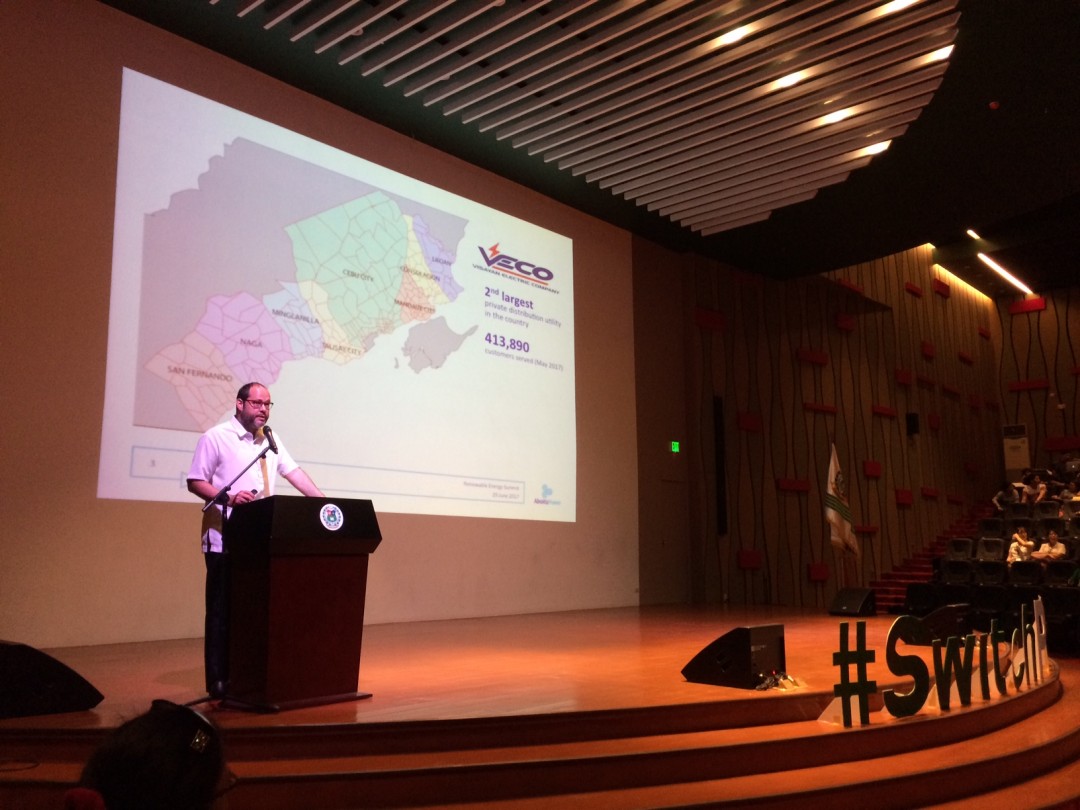Visayan Electric sees balanced mix as key for growth

While more than 50 percent of the Visayan Electric Company’s (VECO) power supply comes from renewable energy (RE), VECO Chief Operating Officer Anton Perdices stressed the need for a balanced mix of generation sources.
Perdices said that RE sources lessen the country’s dependence on imported fossil fuels and help mitigate the effects of climate change. “In the long term, RE is cheaper than fossil-based technologies…but the initial investment into RE is high at present,” he said.
He pointed out that RE has its disadvantages. He said that some types of RE are location-specific, like geothermal and hydro. Solar and wind power farms, on the other hand, cannot provide baseload power due to reliability issues.
He said that to provide reliable and competitively priced power, VECO has to maintain a balanced mix of generation sources.
“A balanced mix of renewable and thermal energy sources can address the different levels and patterns of power demand in the most efficient and cost-effective way,” he said.
VECO’s peak demand in 2016 was 524 MW, of which 50.47 percent come from mostly geothermal sources in the Visayas. VECO, a joint venture of AboitizPower and Vivant Corp., distributes electricity to Metro Cebu towns and cities.
On June 29, Perdices joined former environment secretary Regina Lopez who gave the keynote address during the SwitchPH Renewable Energy Summit at the University of San Carlos-Talamban Campus in Cebu City.
Officials from Greenpeace, Climate Reality Project Philippines, industrial solar providers, and the Cebu Provincial Government also presented successful stories and initiatives in RE during the summit.
Lopez said in her speech that she understands the reservations of VECO and the industrial sector on RE. She said though that several countries have succeeded in switching fully to RE like Uruguay and Costa Rica.
“Transitioning to RE is good and beneficial and it is a sound investment. If we work together, we can fight climate change,” Lopez urged more than 400 students, business leaders, local government officials and NGO representatives in the summit.
Rodne Galicha, Climate Reality PH country branch manager, urged Cebu to lead the rest of the nation in saying “no to coal.”
The Philippines has 32% of its power supply coming from RE in 2015. Around 20% of the global supply for power comes from RE.
Together with its partners, AboitizPower has a net sellable capacity of 3,954 MW, of which 32 percent or 1,263 MW comes from RE. The RE capacity will grow further with the completion of the 69-MW run-of-river Manolo Fortich hydropower project in Bukidnon, the 8-MW Maris Canal hydro project in Isabela, and the 8.8-MW biomass facilty in Lian, Batangas through subsidiary Aseagas.
Last April, AboitizPower celebrated the successful restoration of the 6-MW Binary 1 plant at the MakBan Geothermal Plant.




